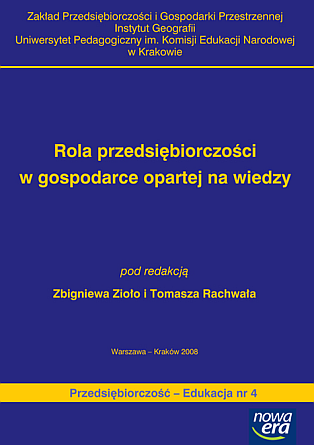„Underclass” i ”konsumenci wybrakowani”. Zmiana stratyfikacji układu społecznego w gospodarce ponowoczesnej
DOI:
https://doi.org/10.24917/20833296.4.21Słowa kluczowe:
konsumenci wybrakowani, ponowoczesność, gospodarkaAbstrakt
The articles issue is to show the dependence between the contemporary economy and thestructure of social system. Peoples attitude to the job that has been surveyed has changedrecently. The problem is the most noticeable in the USA although the whole community inEurope is increasingly affected by changes in the workplace. The same problem is in Poland. Forthe contemporary society career means not only earning money for paying off the debts butabove all it is a means to the end i.e. consumption.According to Zygmunt Bauman work ethics has changed into aesthetic consumption. Howe-ver, the problem does not concern the wealthy people. A lot of poor people suffer because theyare not able to keep up with the rich ones. Campaigns prepared by mass-media show the cleardivision between those who are able and ready to buy anything they want, even the newesttechnical products, and those who live hand to mouth and buy the goods in chains of disco-unts. Journalists speak on the subject of the poor people disparagingly, comparing to thewealthy employers. The changes in the area of behavior make for the dispensable class. Thesepeople usually have poor education and they are discriminated materially. Z. Bauman calledthem underclass. The most concerned is that the problem of underclass is more and moresevere in Poland and that is why the author has attended to this matter.
Bibliografia
Bauman Z., 1994, Dwa szkice o moralności ponowoczesnej, Warszawa.
Bauman Z., 2005, Życie na przemiał, przeł. T. Kunz, Kraków.
Bauman Z., 2006, Praca, konsumpcjonizm i nowi ubodzy, przeł. S. Obirek, Kraków.
Bauman Z., 2007, Szanse etyki w zglobalizowanym wiecie, przeł. J. Konieczny, Kraków.
Bell D., 1973, The Coming of Post-Industrial Society, New York.
Brzozowski T.T., 2006, Praca i przedsiębiorczość w Świetle wybranych encyklik Jana Pawła II, Przedsiębiorczość Edukacja nr 2, Warszawa-Kraków.
Buczyńska-Garewicz H., 2003, Metafizyczne rozważania o czasie. Idea czasu w filozofii i literaturze, Kraków.
Gadamer H.G., 2004, Prawda i metoda. Zarys hermeneutyki filozoficznej, przeł. B. Baran, Warszawa.
Heidegger M., 1994, Bycie i czas, przeł. B. Baran, Warszawa.
Jan Paweł II, 1995, Laborem exercens, Wrocław.
Jaspers K., 2000, Wprowadzenie do filozofii, przeł. A. Wołkowicz, Wrocław.
Kępiński A., 1994, Rytm życia, Kraków.
Lyotard J.F., 1997, Kondycja ponowoczesna. Raport o stanie wiedzy, przeł. M. Kowalska i J. Migasiński, Warszawa.
Rorty R., 1998, Achieving our Country, Harvard.
Sareło Z., 1996, Założenia antropologiczne w etycznych pogl¹dach Z. Baumana [w:] Moralność i etyka w ponowoczesności, Z. Sareło (red.), Warszawa.
Sloterdijk P., 2003, Pogarda mas, przeł. B. Baran, Warszawa.
Szostak V., Michalak K., Gudbaj, Elka, Duży Format , Gazeta Wyborcza nr 40/751 z 22.10.2007 r.
Tukidydes, 1957, Wojna peloponeska, II, 36-41, przeł. K. Kumaniecki, Warszawa.
Wilkoszewska K., 2000, Wariacje na postmodernizm, Kraków.
Wiśniewski R., 1996, Jakiej etyki potrzebujemy? W sprawie uproszczeń postmodernistycznej krytyki etyki [w:] Moralność i etyka w ponowoczesności, Z. Sareło (red.), Warszawa.
Wittgenstein L., 2000, Dociekania filozoficzne, przeł. B. Wolniewicz, Warszawa.
Virilio P., 2007, Wypadek pierworodny, przeł. K. Szerzyńska-Maćkowiak, Warszawa.
Virilio P., 2006, Bomba informacyjna, przeł. S. Królak, Warszawa.
Vattimo G., 2006, Społeczeństwo przejrzyste, przeł. M. Kamińska, Wrocław
Pobrania
Opublikowane
Jak cytować
Numer
Dział
Licencja
Artykuły publikowane są zgodnie z warunkami licencji Creative Commons (CC BY-ND 4.0; uznanie autorstwa-bez utworów zależnych).

